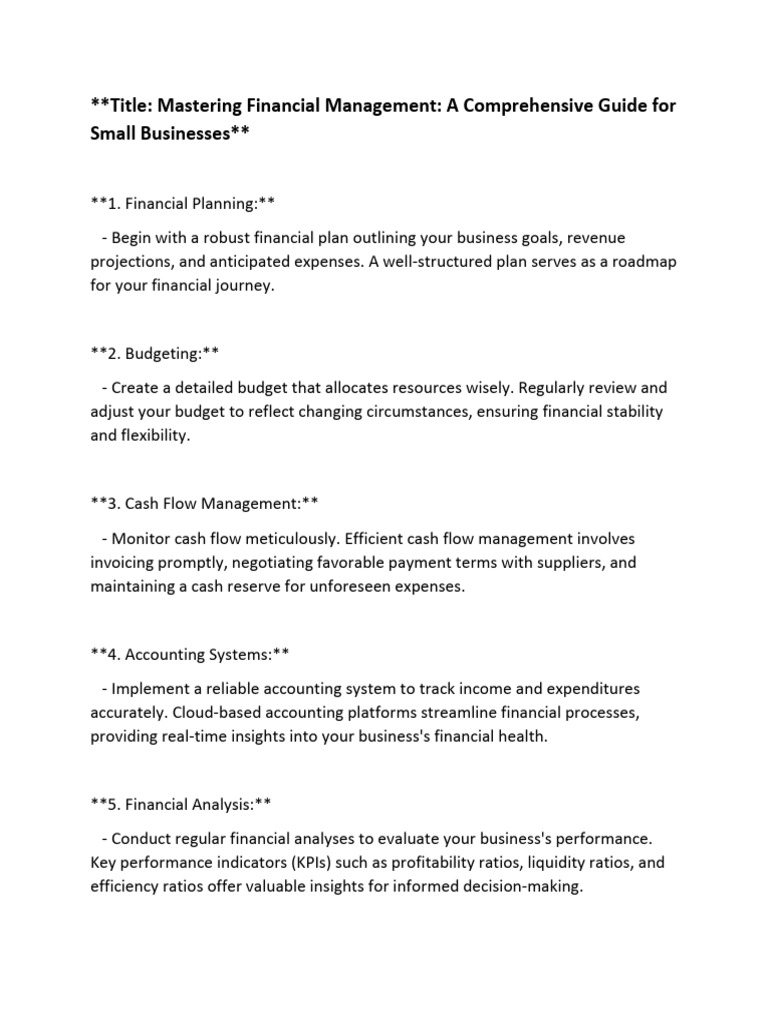Mastering Finance at University: Your Essential Guide

University life is about more than just attending lectures, writing essays, and preparing for exams. It's a critical period where students often experience independence for the first time, which includes managing their own finances. Whether you're figuring out how to stretch your student loan or managing a part-time job alongside your studies, mastering financial management at university is crucial for personal development and future success. This guide will delve deep into the strategies and tips for effectively managing your money during your university years, ensuring you graduate not just with a degree, but with financial wisdom and stability.
Budgeting 101 for University Students

Budgeting is the cornerstone of good financial management. Here’s how you can start:
- Track Your Expenses: Begin by documenting every penny you spend. Use apps or a simple notebook to record daily expenses, which can help identify where your money is going.
- Create a Budget: After tracking your expenses, categorize them into essentials like rent, utilities, food, transportation, and discretionary spending like entertainment or clothing. Allocate a fixed amount for each category.
- Stick to Your Budget: Use the 50/30/20 rule where 50% of your income goes to needs, 30% to wants, and 20% to savings and debt repayment. This can be adjusted based on your income and circumstances.
- Emergency Fund: Even small amounts saved regularly can build an emergency fund over time. Set aside money for unexpected expenses to avoid financial stress.
Utilizing Student Financial Resources


Universities provide various financial aids which can significantly ease your financial burden:
- Scholarships: These are often merit-based or need-based, reducing the amount you need to borrow.
- Bursaries and Grants: Unlike loans, these do not need to be repaid and are usually for students who demonstrate financial need.
- Work-Study Programs: Work-study positions can be a great way to earn while you learn, often with the convenience of working on campus.
- Student Loans: If necessary, consider federal student loans before private ones due to generally lower interest rates and more flexible repayment options.
📚 Note: Always read the fine print on any financial aid. Understanding terms and conditions can prevent future financial pitfalls.
Managing Income and Expenses

Here's how to ensure your income covers your expenses:
- Part-Time Jobs: Many students work part-time. Look for opportunities that offer flexible hours to accommodate your study schedule.
- Internships: Paid internships can provide both experience and income, sometimes even in your field of study.
- Expenses Reduction: Cook at home instead of eating out, use student discounts, and buy second-hand or share textbooks to reduce costs.
| Expense Category | Typical Cost (Monthly) | Student Saving Strategy |
|---|---|---|
| Rent/Utilities | $400-800 | Roomshare or find student housing |
| Food | $200-400 | Meal prep and buy in bulk |
| Transportation | $50-100 | Use student transit passes or bike |
| Entertainment | $100-200 | Free campus events, streaming services |
| Education Costs | $100-300 | Used books, library resources |

Long-Term Financial Planning

Setting financial goals while at university can lead to better financial health post-graduation:
- Build Credit: Use a credit card wisely by paying it off monthly to start building your credit history.
- Invest: Learn about and possibly start small investments in low-risk options like mutual funds or index funds.
- Education: Continue educating yourself about finance through free online resources or university courses offered on personal finance.
- Debt Management: Understand the implications of student loans and plan for repayment even before you graduate.
In summary, your university years are an ideal time to develop a comprehensive understanding of finance. By learning to budget, utilize financial aid, manage your income and expenses, and plan for the long term, you set the foundation for a financially secure future. These strategies not only help you survive university life but also thrive, setting you up for success as you enter the workforce.
How can I find scholarships and grants at university?

+
Visit your university’s financial aid office, explore online scholarship databases, and ask your academic department or faculty for any available opportunities.
Is it worth working part-time while studying?

+
It depends on your ability to balance work and study. Working part-time can provide financial independence and practical experience, but ensure it does not hinder your academic performance.
What are some tips for saving money at university?

+
Opt for sharing accommodation, utilize student discounts, cook your own meals, and sell back your textbooks or buy used ones. Also, consider using public transportation or walking/biking to campus.